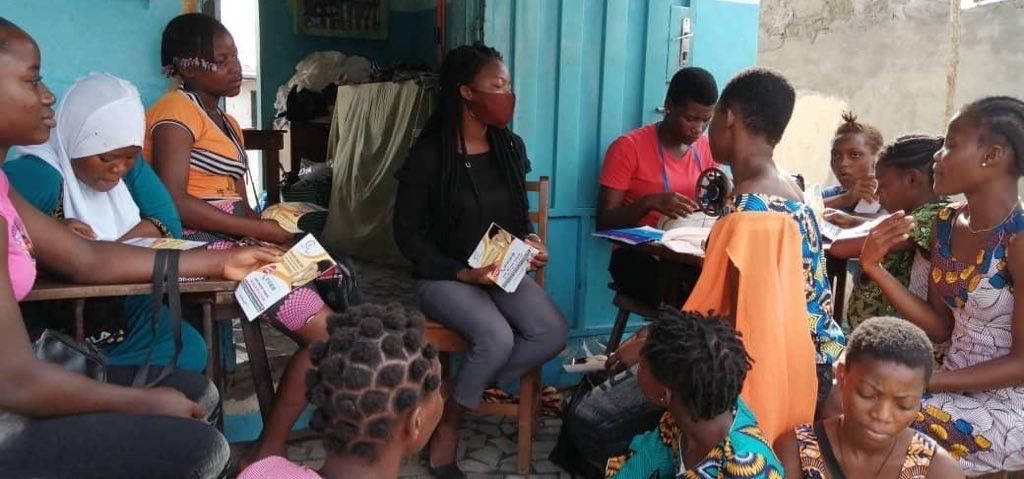Dialogue@work 2021-2030
Our union partners work in extremely challenging conditions. In the countries where we do our work, matters of safety, health, and economics for the workers are under great pressure. The space for social organisations like trade unions, is also shrinking. We strive to achieve a more fair division of income and prosperity through the use of inclusive constructive social dialogue between governments and the private sector and by supporting labour rights and trade union freedom. The trade union financing programme, Dialogue@Work, is one way we and our union partners are showing our efforts to create fairness and justice in the world. CNV Internationaal is using this new programme to build upon our successes and translate what we’ve learned into new ways of working.
Our Theory of Change shows what we want to achieve and how we plan to do so. We focus on achieving 4 results:
- Strengthening inclusive social dialogue at national and de-centralised levels
- Improving labour rights for workers in the supply chains
- Increasing youth employability
- Achieving equal labour rights for women and ensuring them greater input in the workplace
Our main work is, as always, to support our partner unions in getting results for (vulnerable) workers. In essence, this means setting social dialogue processes in motion between trade unions, governments, and employers. It also involves managing obstacles and resistance. We look into issues like who would want to create resistance to this process and why? What interests are at stake? And how can we exercise our influence to eliminate these obstacles?
Learn more about the results of the Dialogue@Work Programme throughout 2023
International supply chains
We work in a number of international supply chains for industries like palm oil, sugar cane, mining, and textile. We bring together parties with opposing interests. When we work together, it’s easier to expose weak spots. Then we cooperate to create strategies and projects which promote social dialogue and a living wage. During these processes, we work closely with regional union networks whose role is essential.
And finally, our programme invests in the development of modern means of communication, like apps, digital platforms, and social media. This is important for sharing and receiving information and for improving social dialogue. We support our partners and encourage them to use these technologies when they lobby. They increase their visibility and allow them to reach new target groups.

Leadership, gender, and youth
Our leadership programme stimulates union managers, new and experienced, youth, women, and men to implement change. We strongly believe in having the managers of our partner unions share and exchange their experiences with the managers of CNV Professionals, CNV Connectief, and CNV Youth.
We specifically look at things from a gender perspective. We evaluate the differences between men’s and women’s positions and decide what concrete measures should be taken to promote gender equality at work. We also pay special attention to youth employability. We investigate ways to improve the connections between education and the labour market, as well as how we can help young people strengthen their position in the labour market. When unions give women and youth more leadership opportunities, the unions gain legitimacy with the government and employers when they lobby.
CNV Internationaal helps their trade union partners achieve results within their own socio-economic and political context. We support them in doing their own research and using that research in their lobbying. With these practices, we strive to influence policy with evidence-based research. We also continue to stimulate strategic cooperation among trade union organisations in order to broaden their support base. We organise meetings, study trips, and exchanges between unions from various countries.

Within the Dialogue@Work programme we currently work in the Palm Oil, Mining (coal and metals), Cashew and Sugarcane sector.